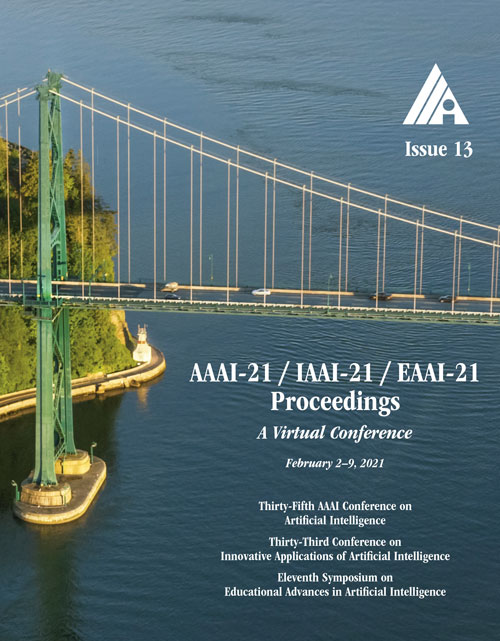Improving Continuous-time Conflict Based Search
DOI:
https://doi.org/10.1609/aaai.v35i13.17338Keywords:
Multiagent Planning, Heuristic Search, Motion and Path PlanningAbstract
Conflict-Based Search (CBS) is a powerful algorithmic framework for optimally solving classical multi-agent path finding (MAPF) problems, where time is discretized into the time steps. Continuous-time CBS (CCBS) is a recently proposed version of CBS that guarantees optimal solutions without the need to discretize time. However, the scalability of CCBS is limited because it does not include any known improvements of CBS. In this paper, we begin to close this gap and explore how to adapt successful CBS improvements, namely, prioritizing conflicts (PC), disjoint splitting (DS), and high-level heuristics, to the continuous time setting of CCBS. These adaptions are not trivial, and require careful handling of different types of constraints, applying a generalized version of the Safe interval path planning (SIPP) algorithm, and extending the notion of cardinal conflicts. We evaluate the effect of the suggested enhancements by running experiments both on general graphs and 2^k-neighborhood grids. CCBS with these improvements significantly outperforms vanilla CCBS, solving problems with almost twice as many agents in some cases and pushing the limits of multi-agent path finding in continuous-time domains.Downloads
Published
2021-05-18
How to Cite
Andreychuk, A., Yakovlev, K., Boyarski, E., & Stern, R. (2021). Improving Continuous-time Conflict Based Search. Proceedings of the AAAI Conference on Artificial Intelligence, 35(13), 11220-11227. https://doi.org/10.1609/aaai.v35i13.17338
Issue
Section
AAAI Technical Track on Multiagent Systems

